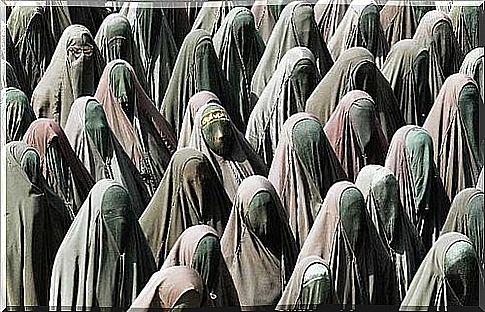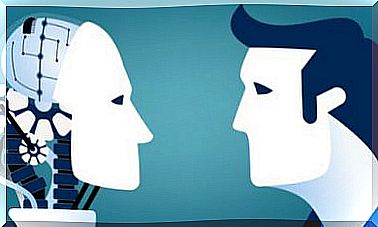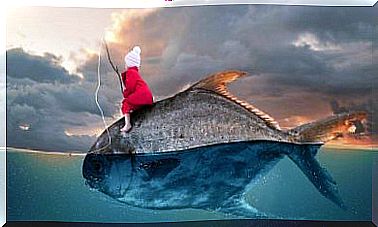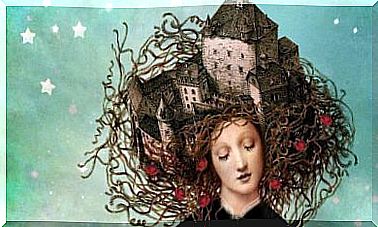From Insecurity To Fanaticism

“Fanaticism is to superstition what delirium is to fever, what rage is to anger. He who has ecstasy, visions, he who takes dreams for realities and his imaginations for prophecies is a fanatical novice with great hopes; he will soon be able to kill for the love of God ” (Voltaire)
The other day, when I was watching the terrorist attack in France on the news, I wondered what could be in the minds of those people who are capable of brutally murdering others who do not think like them ; when, ultimately, people are independent and have the right to think or believe what we want, this being something that no one can take away from us, no matter how much they take our existence.
Are they crazy? Are they sick? Are they psychopaths?
I also wondered how intense their feelings must be when they see their beliefs threatened, so to speak.
Will they feel intimidated? Angry? Sad? Furious?
The amount of massacres, ethnic cleansings and abominable murders that have occurred throughout history in the name of a God, of a belief or idea, of a leader came to my mind. The most curious thing is that religious fanaticism is the one that has come to shed the most blood in the name of a deity, something that is contradictory with the ideals of the religions themselves that are wielded to do harm. As an example we could name the Holy Inquisition, that institution that was in charge of annihilating anyone who supposedly was against its ideas.
As a psychologist, I always try to put myself in someone else’s shoes, no matter how crazy or tremendous their behavior is, because I think it is interesting to know why certain people behave the way they do, much less to justify them.
From asking myself questions so much, I came to the conclusion that fanatical people who go to these extremes, deep down, are weak and harbor deep insecurity within them.
It sounds weird and even contradictory, but let’s think about it. If a person is self-confident, to begin with, they are able to flexibly tolerate opinions different from their own and maintain an open attitude to new ideas or nuances, something that fans are incapable of doing, as this would mean contemplating that they can There is a reality other than what they believe and this causes fear. Therefore, not only do they not tolerate ideas other than their own, but they persecute and condemn those who contradict them, as these could cause their security and stability to falter.
On the other hand, security in their opinions and beliefs would never lead them to use aggressiveness or violence against others who think differently, because aggressiveness is not born from security, but from insecurity, fear, anxiety .
“Violence is fear of the ideas of others and little faith in their own” (Antonio Fraguas)
That is to say, the fanatic adheres so much to their convictions and ideals because they need that highly valued sense of security that they lack and with fanaticism the person manages to eliminate their uncertainty completely. It is like a defense mechanism, a reaction to that need to believe in something that “saves” them.
Uncertainty is an annoying and negative feeling for anyone because doubts, whatever they are, create anxiety and tension for all of us, but that tension will be much greater the more relevant the issue we doubt about is for us.
Certainly, the religious or political issue is very important to many people, but they are flexible and able to accept other points of view on these issues, even if they do not share them. In the case of the fanatic, this deep feeling of insecurity leads them and forces them to believe that their truth is unique and absolute and this frees them from fear and saves them a lot of suffering, which consequently creates a feeling of certainty, of security, of relief that reinforces his fanaticism. In addition, fanaticism provides the fanatic with a sense of unity, coherence, that “we all think the same because that is the only reality.”
This means a vicious cycle from which it is difficult to escape, despite the consequences that it entails in many cases. We already know these consequences, they could be summed up in “the loss of one’s own freedom”, to the point that someone ends up taking their own life in the name of their ideals.
So far, we could say that we have managed, more or less, to put ourselves in the shoes of the fans and understand (not to share) how they think and what they feel to act like this. After this analysis, only a feeling of pity remains in me. A pity that someone loses their freedom, that they live in their own reality, that they are not capable of accepting uncertainty and that they end up dying or murdering for pursuing an ideal considered more important than life itself.
“If you murder in the name of your God, the only one who is offending him is you”









